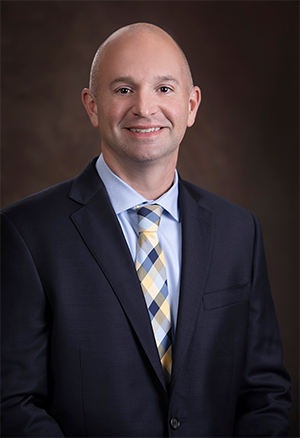Published on April 29, 2024
Owensboro Health Works to Combat Opioid Crisis

In a recent Owensboro City Commission meeting, Jason Collins, Owensboro Health Executive Director of Pharmacy, shed light on the innovative steps being taken to tackle the opioid crisis head-on. Owensboro Health's approach targets a struggle that affects communities across the nation, showcasing a comprehensive strategy aimed at reducing opioid prescriptions while providing effective pain management solutions.
Central to Owensboro Health's initiative is the introduction of a carefully designed pain treatment order panel for healthcare providers. This panel prioritizes non-pharmacological and non-opioid pharmacological options for pain management, such as acupuncture and over-the-counter pain relievers like Tylenol and ibuprofen, before considering opioids. This method not only makes it simpler for providers to opt for safer alternatives but also serves as a constant reminder that there are effective options beyond opioids. Since its implementation in January 2021, the panel has been a cornerstone in promoting responsible prescribing practices.
The decline in opioid prescriptions at Owensboro Health is attributed to a multifaceted effort, including the effective use of the pain order panel, vigilant monitoring of prescribing practices, and targeted educational initiatives for healthcare providers. Collaboration with the Kentucky Hospital Association (KHA) and the Cabinet for Health and Family Services has further strengthened this endeavor, through the Kentucky Statewide Opioid Stewardship (KYSOS) program. This partnership focuses on improving opioid ordering practices across various medical procedures, with the aim of either eliminating the need for opioids or significantly reducing their prescription duration.
Moreover, Owensboro Health is pioneering efforts to extend opioid stewardship beyond hospital settings into primary care clinics, a move that promises to broaden the impact of these initiatives. In tandem with these efforts, the health system is also enhancing access to Narcan, a life-saving medication that can reverse opioid overdoses, making it readily available in several Owensboro Health locations and through partnerships with local health departments and agencies.
Owensboro Health's comprehensive strategy represents a forward-thinking approach to a complex issue, emphasizing the importance of prevention, education, and community support. By prioritizing non-opioid pain management options, fostering statewide collaborations, and ensuring the availability of overdose-reversal medications, Owensboro Health is not only addressing the immediate challenges of opioid addiction but also paving the way towards a healthier, safer community.
About Owensboro Health
Owensboro Health is a nonprofit health system with a mission to heal the sick and to improve the health of the communities it serves in Kentucky and Indiana. The system includes Owensboro Health Regional Hospital, nationally recognized for design, architecture and engineering; Owensboro Health Muhlenberg Community Hospital; Owensboro Health Twin Lakes Medical Center; the Owensboro Health Medical Group comprised of over 350 providers at more than 30 locations; four outpatient Healthplex facilities, a certified medical fitness facility, the Healthpark; a weight management program, and the Mitchell Memorial Cancer Center.
On average each year, we have more than 19,000 inpatient admissions, deliver 2,000 babies and provide the region’s only Level III NICU. Owensboro Health physicians perform nearly 33,000 surgical procedures, including nearly 150 open-heart surgeries. Our physicians and staff have 90,000 Emergency Department visits and more than 1.25 million outpatient visits annually. Visit our home page for more information.